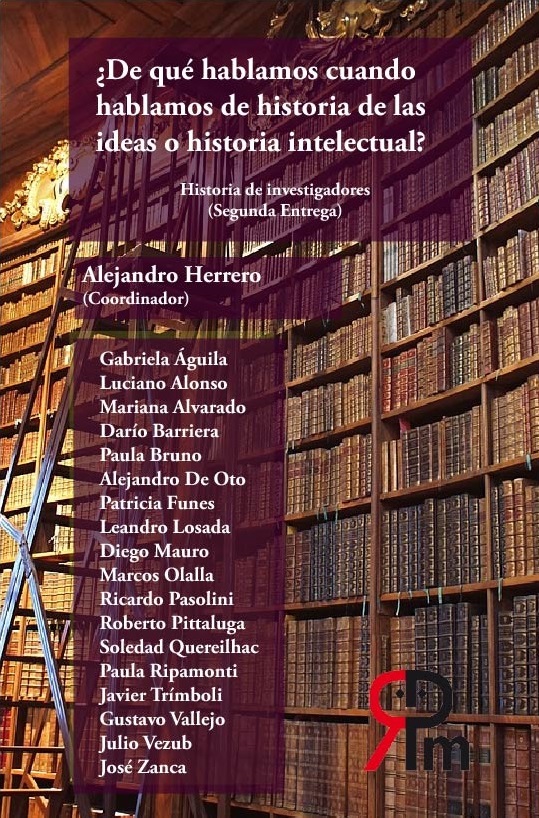¿De qué hablamos cuando hablamos de historia de las ideas o historia intelectual? Historia de investigadores (Segunda Entrega)
- Dr. Marcos Olalla Universidad Nacional de Cuyo, CONICET https://orcid.org/0000-0003-1111-1067
- Dr. José Zanca Universidad de Buenos Aires, CONICET https://orcid.org/0000-0002-0552-4618
- Dr. Julio Vezub IPCSH-CONICET, https://orcid.org/0000-0001-6582-3663
- Dr. Gustavo Vallejo Universidad Nacional de La Plata, CONICET https://orcid.org/0000-0003-4730-2455
- Javier Trímboli Universidad Nacional de La Plata, Universidad de Buenos Aires
- Dra. Paula Ripamonti Universidad NAcional de Cuyo https://orcid.org/0000-0003-0187-1273
- Dra. Soledad Quereilhac Universidad de Buenos Aires-Universidad Nacional de San Martín-CONICET https://orcid.org/0000-0001-9743-200X
- Roberto Pittaluga Universidad Nacional de La Pampa-Universidad Nacional de La Plata-Universidad de Buenos Aires
- Dr. Ricardo Pasolini Universidad Nacional del Centro de la Provincia de Buenos Aires-CONICET https://orcid.org/0000-0001-8760-2968
- Dr. Alejandro Herrero UNLa-USAL-CONICET https://orcid.org/0000-0003-4726-5236
- Dr. Diego Mauro Universidad de Rosario, CONICET https://orcid.org/0000-0001-9682-4116
- Leandro Losada Universidad Nacional de San Martín, CONICET https://orcid.org/0000-0002-4658-0819
- Dra. PAtricia Funes Universidad de Buenos Aires https://orcid.org/0000-0002-1697-4905
- Dr. Alejandro De Oto Universidad Nacional de San Juan, CONICET https://orcid.org/0000-0002-2704-1123
- Dr. Darío G. Barriera Unviersidad Nacional de Rosario, CONICET https://orcid.org/0000-0003-3708-8301
- Dra. Mariana Alvarado Universidad Nacional de Cuyo, CONICET https://orcid.org/0000-0001-5562-1697
- Dr. Luciano Alonso Universidad Nacional del Litoral, CONICET https://orcid.org/0000-0001-5728-9747
- Gabriela Águila Universidad de Rosario, CONICET https://orcid org/0000-0002-4747-3345
Abstract
Siempre hay una historia, en realidad muchas historias. Este dossier, obviamente, tiene las suyas, y me gustaría contar al menos una versión que reúna a colegas que guardo siempre en mi memoria y a otras y otros con quiénes nos encontramos, a veces, en ese mundo virtual de las nuevas comunicaciones o en reuniones académicas.
Un hilo conductor liga y organiza esta breve narración. Me preocupa y me ocupa como historiador la preservación de los archivos documentales y la creación misma de fuentes. Me resulta muy revelador conocer la experiencia de la cocina de la investigación, de la enseñanza, de los modos de lecturas y de las diversas estrategias de escrituras (...).
Downloads
Author Biographies
Alejandro Herrero: herrero_alejandro@yahoo.com.ar UNLa-USAL-CONICET
https://orcid.org/0000-0003-4726-5236 Docente en Universidad Nacional de Lanús y Universidad
del Salvador. Investigador del CONICET


